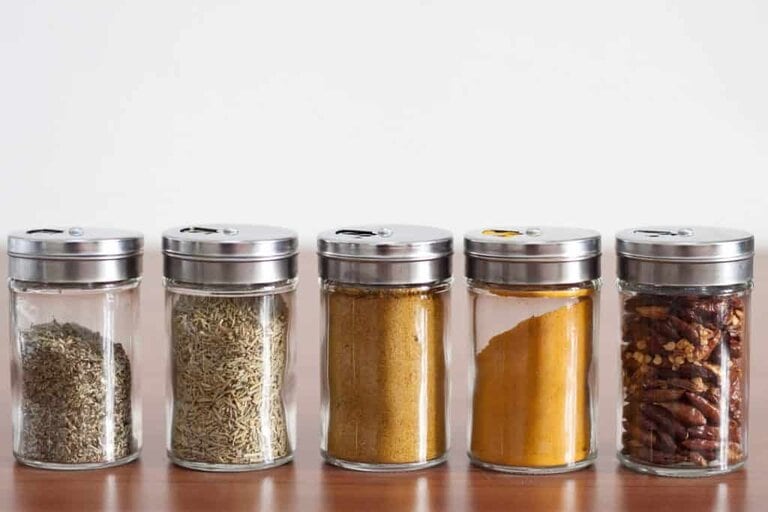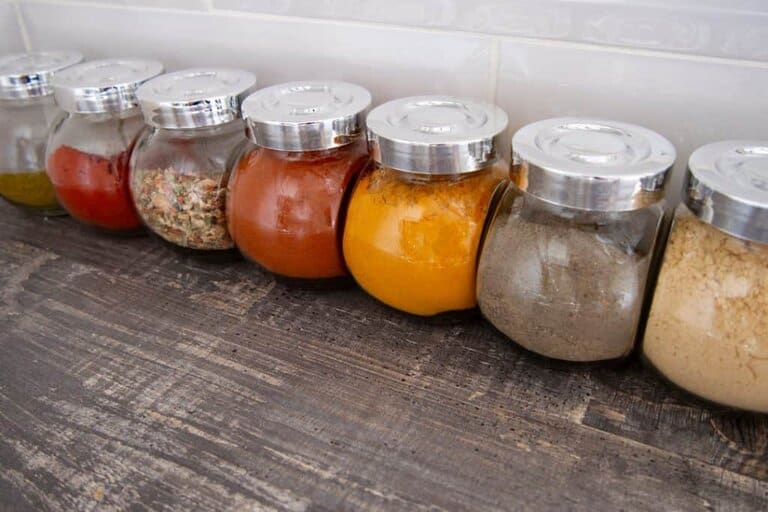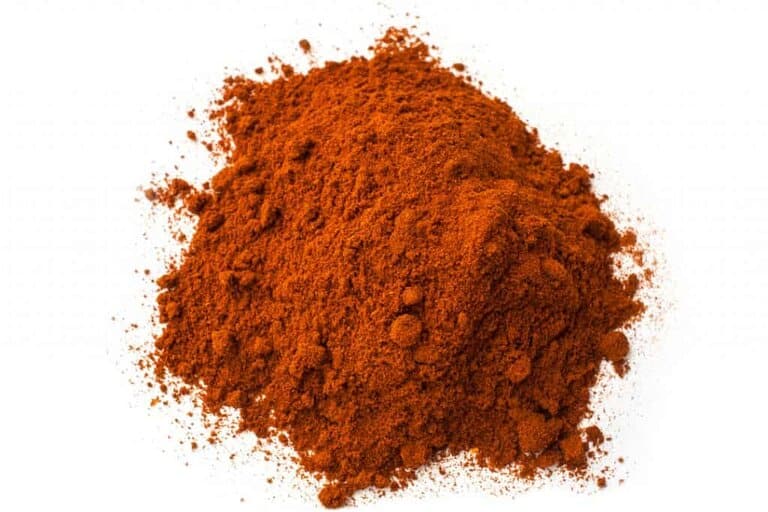Spice clumps up when moisture is introduced into the container. Placing a moisture sucker into your spice container will eject any moisture in it.
Imagine that you are preparing a meal for your special one on your anniversary. Every ingredient in the recipe is prepped, and cooking is underway. Suddenly, you realize that your main spice is clumped up and useless.
You must start grinding the spices hurriedly while your food is boiling away. That was me, but not anymore.
The day after that incident that ruined my meal, I went full-blown scientist as I explored why species clump up. I found that they tend to clump up together in humid climates, drastically reducing their shelf life and taste.
Clumping occurs when light, moisture, and humidity seep into the spice container. This causes the carbohydrates in the spice to precipitate, thereby becoming sticky, making them clump up together.
This phenomenon is especially prevalent in humid regions, and the most common culprits include garlic powder, onion powder, taco seasoning, and chili powder.
But I found the solutions! Here are the best tips to preserve spices in a humid climate.

Tip 1: Add A Moisture Sucker
Moisture suckers are natural materials that absorb any moisture in the environment, and that’s what you need them to do inside your spice containers. Rice and beans are the most common moisture suckers, so you don’t need to go to a store to buy one.
Simply place dried beans into the container as they work specifically for shakers. Using rice in shakers with large holes may spoil your meal if you pour the beans with the spice. But you can always use rice for spice shakers with small holes that they don’t pass through.
Tip 2: Store Away From Light
Contrary to what you might believe, clumping has little to do with the quality of the spice but a lot to do with storage. Your storage method doesn’t just impact the texture but also the potency, shelf life, and aroma of the spice.
When some spices are exposed to light, they begin to degrade fast. The photosensitive elements within those spices get oxidized and break down, which is common for pigmented spices like turmeric, saffron, etc. Hence, it is important to have spices in a cool, dark place.
Tip 3: Avoid Exposure To Moisture
When dry spices are exposed to air, they begin to ABSORB moisture. This moisture absorption lumps the spice together in no time. Moisture content in dry spices makes spices hard to use, and it eventually poses a health hazard.
It promotes the growth of mold, which renders the spices useless. You definitely don’t want to use spices with mycotoxins that are genotoxic and can cause cancers.
Here’s how to avoid moisture getting in your spice:
- Avoid sprinkling spices over hot and steaming pots. This will cause steam to travel up into the container and introduce moisture into it, which causes clumping.
- When you use spices, keep them away from the stove area. You can pour it out in a bowl or use a measuring spoon before administering it into the pot.
- If you store a large quantity, separate them into smaller shakers. You can use those daily while the rest is stored away in a cool, dark place.
Tip 4: Store In An Airtight Container

Proper storage for spices requires an airtight container. Studies show whole spices can lose up to 47% of their essential oils when left in paper bags. Powdered spices can lose up to 90% of their essential oils, making them only 10% effective.
Tip 5: Store Upside Down
When you store spice containers upside down, it becomes hard for moisture to gain access. It reduces the air gap through which moisture can seep through the lid. The combination of this method with moisture sucker is foolproof.
Tip 6: Control The Internal Room Temperature
For industrial kitchens, which are quite dynamic, you should have a set temperature. This may include installing an HVAC system into the facility to maintain internal temperature. Modern HVAC systems now come with humidity control solutions to maintain the ideal temperature for foodstuff, spices, and staff productivity. This solution is especially required in humid regions.
General Tips For Preserving Spice
- The longer you keep spices, the more susceptible they are to losing their flavor.
- Avoid keeping spices on shelves that are directly above grills or sinks.
- When administering spices, ensure you use a dry measuring spoon. If a spoon has hovered over a steaming pot, endeavor to dry it before dipping it into another spice.
- Having a humid environment within your kitchen can affect your spices just as much as the humid climate of your geographical location.
- Storing spices in tin containers is an effective way, but certain spices may corrode the surface of the container, such as salt.
- When stored appropriately, whole spices can stay fresh for about four years, while powdered spices can last for 2 to 3 years. Dried herbs can also last for 1 to 3 years.
- Don’t store spices in plastic containers because they are susceptible to being porous and allowing small amounts of air to seep in. storing in plastic containers may reduce the lifespan of your spice.
What To Do When Spices Clump Up

If you notice your spice clump up, run hot water over the bottle’s exterior and unclamp with an ice pick. Pour the clumped spice into a bowl and crush with the back of a spoon to powder again.
The Best Storage Containers For Spices
- Glass Spice Jars: When spices are kept in glass containers, they tend to lose less essential oils to the atmosphere than spices in a plastic container. Glass extends the shelf life of spices significantly, making it the best option.
- Tin Containers: These are quite affordable and accessible.
- Carousel spice racks: They can be stored in a cupboard.
FAQs On How To Keep Spices From Clumping In Humid Climate
Can I Store My Spices In A Freezer?
Yes, storing spices in the freezer is perfectly fine if the container is airtight and the freezer doesn’t leak.
Can I Use Silica Packets To Keep Spices From Getting Clumped Up?
Yes, but it is important to use food-safe silica packets. This will absorb the atmosphere just like any other moisture absorber.
Are Clumped-Up Spices Safe To Eat?
Yes, clumped-up spices are typically safe to eat as long as they have not passed their best before date. Dispose of all spices that show signs of mold growth.